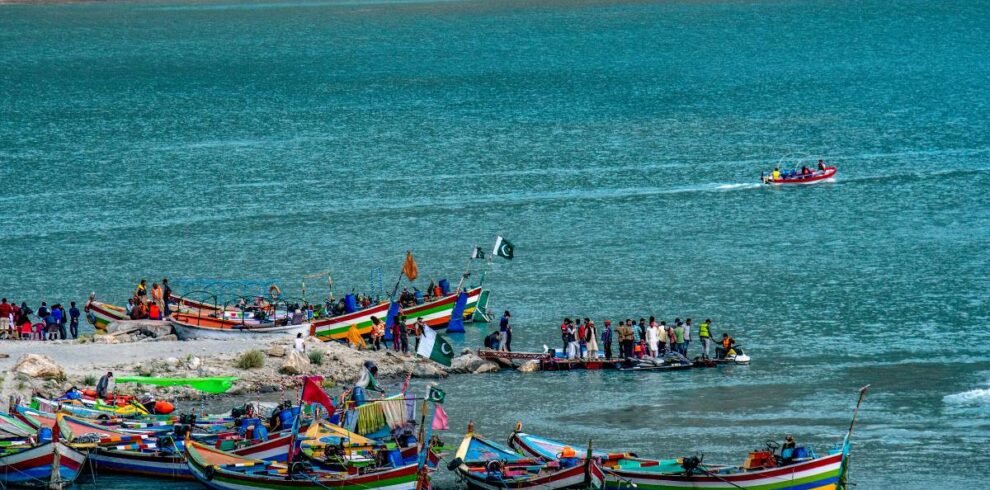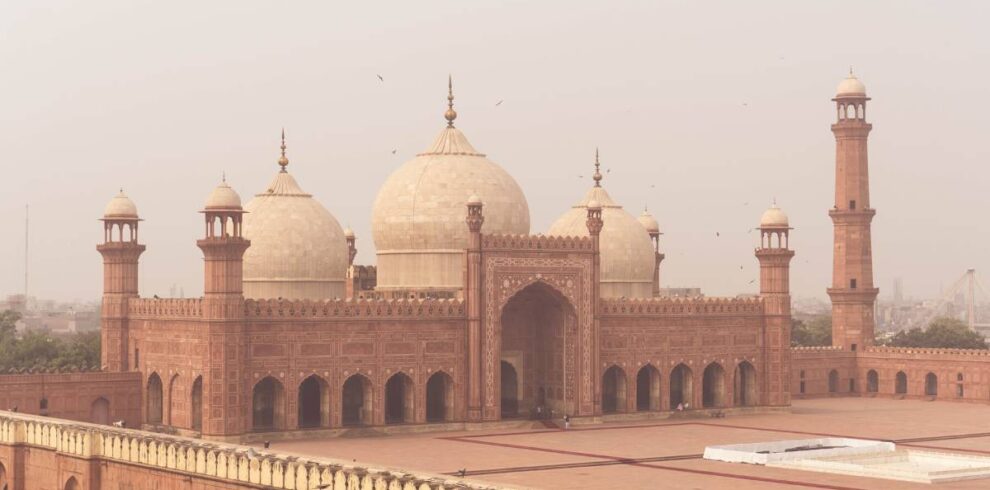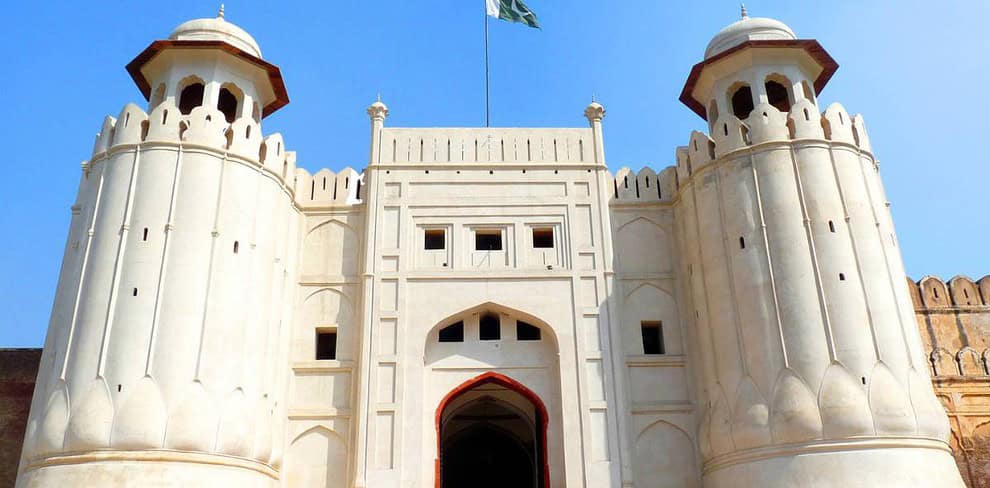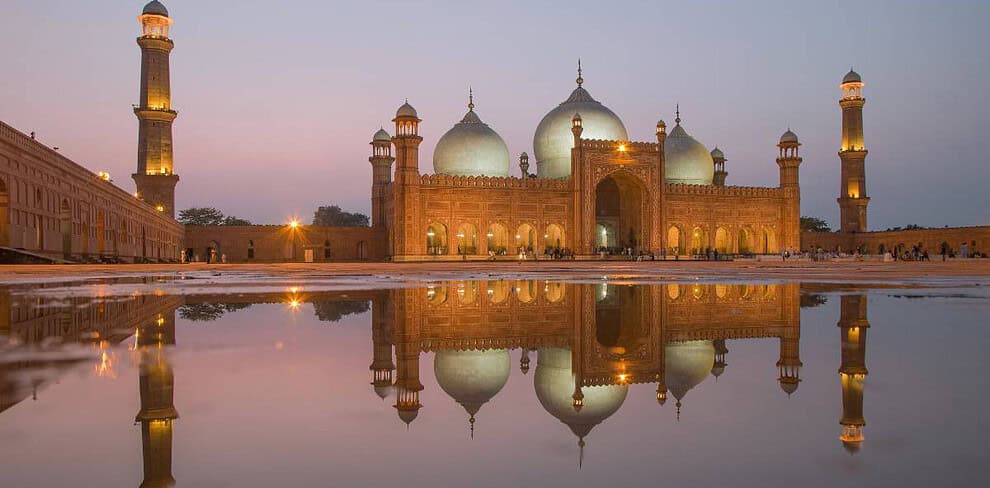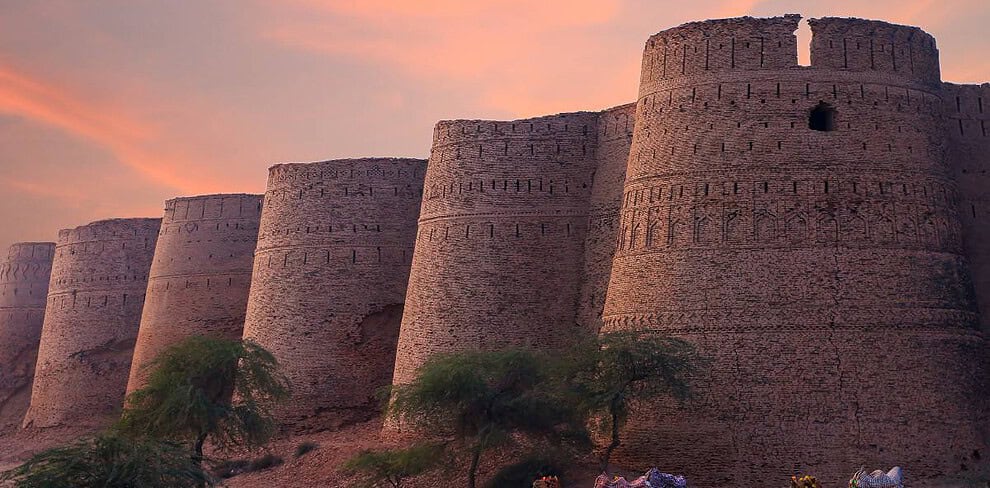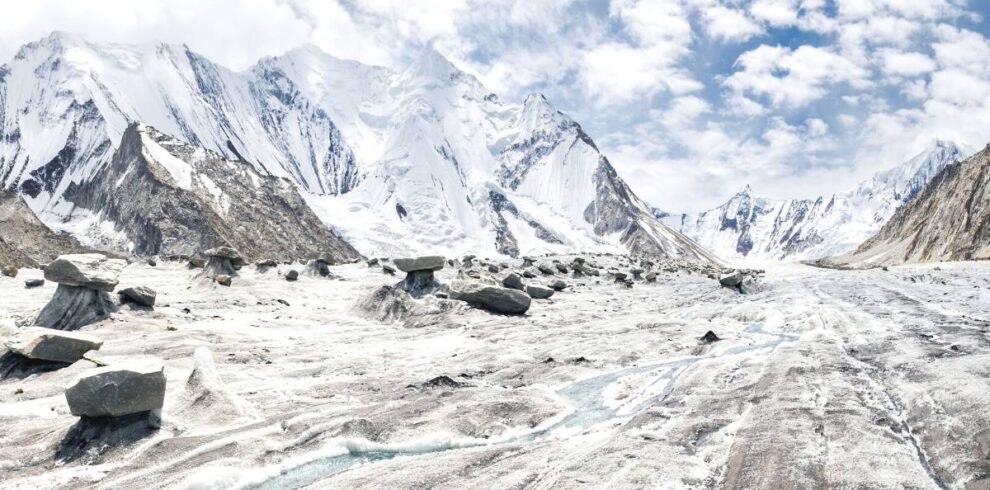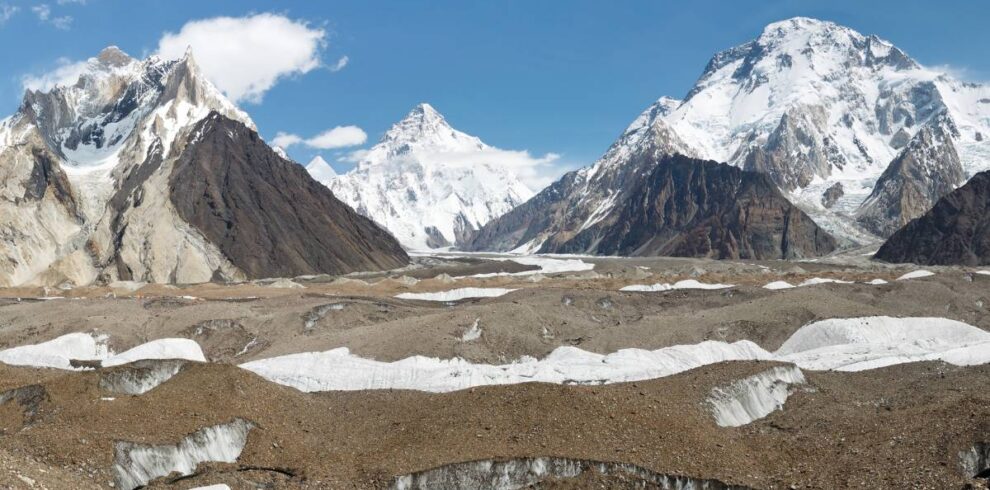Table of Contents
Immerse yourself in Pakistan culture as we provide you with an in-depth understanding of the customs of Pakistan, showcasing its diverse and vibrant heritage, including traditions, values, and unique customs and practices.
Pakistanis place a strong emphasis on hospitality, warmly welcoming guests into their homes. Family is at the heart of Pakistani society, with strong bonds and a sense of community. It’s important to note that Pakistan culture is continually evolving, influenced by historical events, regional dynamics, and global interactions.
Gaining insight into the culture of Pakistan can provide valuable perspectives on the intricate and diverse society of the country.
Pakistan Culture
Here are the most important points to begin learning about Pakistan culture and customs:
- Cultural Diversity: Pakistan is a culturally diverse nation with a rich tapestry of ethnic groups, including Punjabis, Sindhis, Pashtuns, Balochis, and more. Each group has its own customs, traditions, and languages.
- Languages: Pakistan is multilingual, with Urdu being the national language. However, various regional languages and dialects, such as Punjabi, Sindhi, Pashto, and Balochi, are widely spoken.
- Islamic Heritage: Pakistan is an Islamic Republic, and Islam is deeply embedded in its culture and daily life. The majority of Pakistanis practice Sunni Islam, with a significant Shia minority. Islamic practices, such as daily prayers, fasting during Ramadan, and adherence to Islamic dietary laws, are widely observed.
- Greeting Etiquette: Pakistanis typically greet each other with warm hospitality. Handshakes are common between men, while men and women often greet each other verbally with polite phrases. A traditional greeting is “Assalamu Alaikum,” meaning “Peace be upon you.”
- Traditional Clothing: Traditional Pakistani clothing includes the “shalwar kameez” for both men and women. These outfits vary in design, embroidery, and color, showcasing regional and cultural diversity.
- Cuisine: Pakistani cuisine is known for its diverse and flavorful dishes. Common dishes include biryani, kebabs, nihari, and various curries. Naan and roti are staple bread items. Spices like cumin, coriander, and turmeric are commonly used.
- Hospitality: Pakistanis are known for their warm hospitality, and guests are often offered tea, meals, and snacks. It is considered polite to accept these offerings.
- Arts and Crafts: Pakistan has a rich tradition of arts and crafts, including intricate handwoven carpets, pottery, calligraphy, and traditional textiles. These crafts represent the cultural heritage of different regions.
- Music and Dance: Traditional music and dance are an integral part of Pakistan culture. Instruments like the sitar and tabla are commonly used in classical music, while regional folk dances are performed at cultural events.
- Religious and Cultural Festivals: Pakistanis celebrate various religious and cultural festivals, including Eid al-Fitr, Eid al-Adha, Basant (kite festival), and Pakistan Day. These festivities involve prayers, feasts, and cultural performances.
- Family and Community: Family plays a central role in Pakistani society, and extended family bonds are strong. Community support and social connections are highly valued.
- Gender Roles: Traditional gender roles are prevalent, with men and women often having distinct societal roles. However, there are ongoing changes, particularly in urban areas, where women are increasingly participating in the workforce.
- Marriage Customs: Arranged marriages are common in Pakistan, with families taking an active role in matchmaking. Marriages are seen as unions not only between individuals but also between families.
- Cultural Expressions: Pakistan culture is also expressed through literature, poetry, and cinema. Renowned poets like Allama Iqbal and Faiz Ahmed Faiz have made significant contributions to Urdu literature.
- Resilience and Adaptation: Pakistan’s history includes periods of conflict and resilience, which have influenced its cultural evolution and the way communities support one another.
These customs and traditions are integral to Pakistan’s cultural identity, reflecting its rich history and diversity. Understanding these aspects provides valuable insights into the complex and vibrant society of Pakistan.
Pakistan Traditional Attire
Pakistan traditional attire is a reflection of the country’s diverse cultural heritage, regional distinctions, and historical influences. The clothing worn by Pakistanis serves both functional and cultural purposes, representing the nation’s identity and traditions.
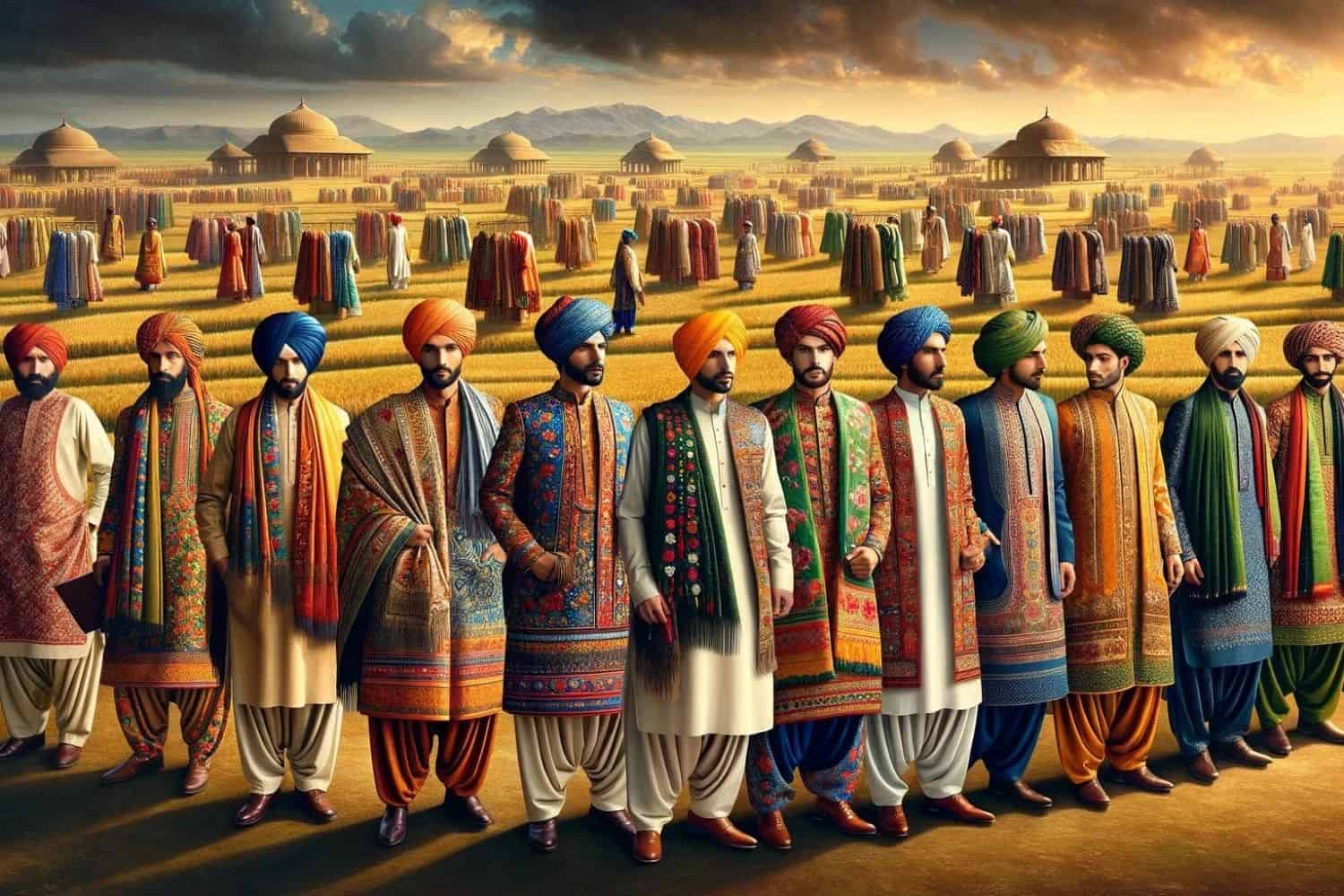
1. Regional Variation: Pakistan’s traditional clothing varies by region, influenced by climate, lifestyle, and cultural diversity. In the northern and mountainous regions, people often wear warmer and layered garments, while lighter clothing is favored in the southern and coastal areas.
2. Pakistani Shalwar Kameez: The shalwar kameez is the quintessential traditional attire for both men and women in Pakistan. It consists of loose-fitting pants (shalwar) paired with a long tunic (kameez). The design, embroidery, and fabric vary by region and occasion. Men may wear a matching headpiece called a “pagri” or “topi.”
3. Sindhi and Balochi Attire: Sindhi and Balochi communities have their unique traditional clothing. Sindhi men often wear a “kurta” with “aji,” a type of shalwar, while Balochi men may opt for a “sharwani” or “jamag.” Women from these regions wear colorful dresses adorned with intricate mirror work and embroidery.
4. Pakol and Chitrali Cap: In the mountainous regions of Khyber Pakhtunkhwa, the traditional “pakol” cap is commonly worn by men. In Chitral, the Chitrali cap is a symbol of identity and is beautifully handwoven.
5. Modesty and Cultural Significance: Traditional Pakistani clothing emphasizes modesty, with garments designed to cover the body. Fabrics, colors, and embroidery often carry cultural and regional meanings. Special attention is paid to choosing appropriate attire for religious and formal occasions.
6. Bridal Attire: Pakistani bridal attire is known for its opulence and diversity. Bridal dresses vary by region and can include heavily embroidered lehengas, saris, or ghararas, often adorned with jewelry and elaborate makeup.
7. Adaptation to Modernity: While traditional attire remains significant, Pakistanis also incorporate Western clothing into their daily lives, especially in urban areas. Western-style suits and dresses are common for formal and professional occasions.
8. Islamic Influence: Islamic values influence Pakistani clothing, with an emphasis on modesty and covering the body. The choice of attire often reflects religious and cultural beliefs.
9. Resilience and Adaptability: Traditional Pakistani clothing has evolved over time but continues to maintain its cultural authenticity and significance. Pakistan’s diverse population has contributed to the richness of its traditional attire.
Pakistan traditional clothing is not just a matter of fashion; it represents the country’s cultural mosaic, history, and identity. It serves as a visual testament to the vibrant tapestry of traditions that define Pakistani society.
Pakistan Marriage Traditions
Pakistan Marriage Traditions are deeply ingrained in the country’s rich cultural and religious heritage, with variations across different regions and ethnic groups. These traditions hold significant importance in Pakistani society, reflecting historical customs as well as contemporary influences.
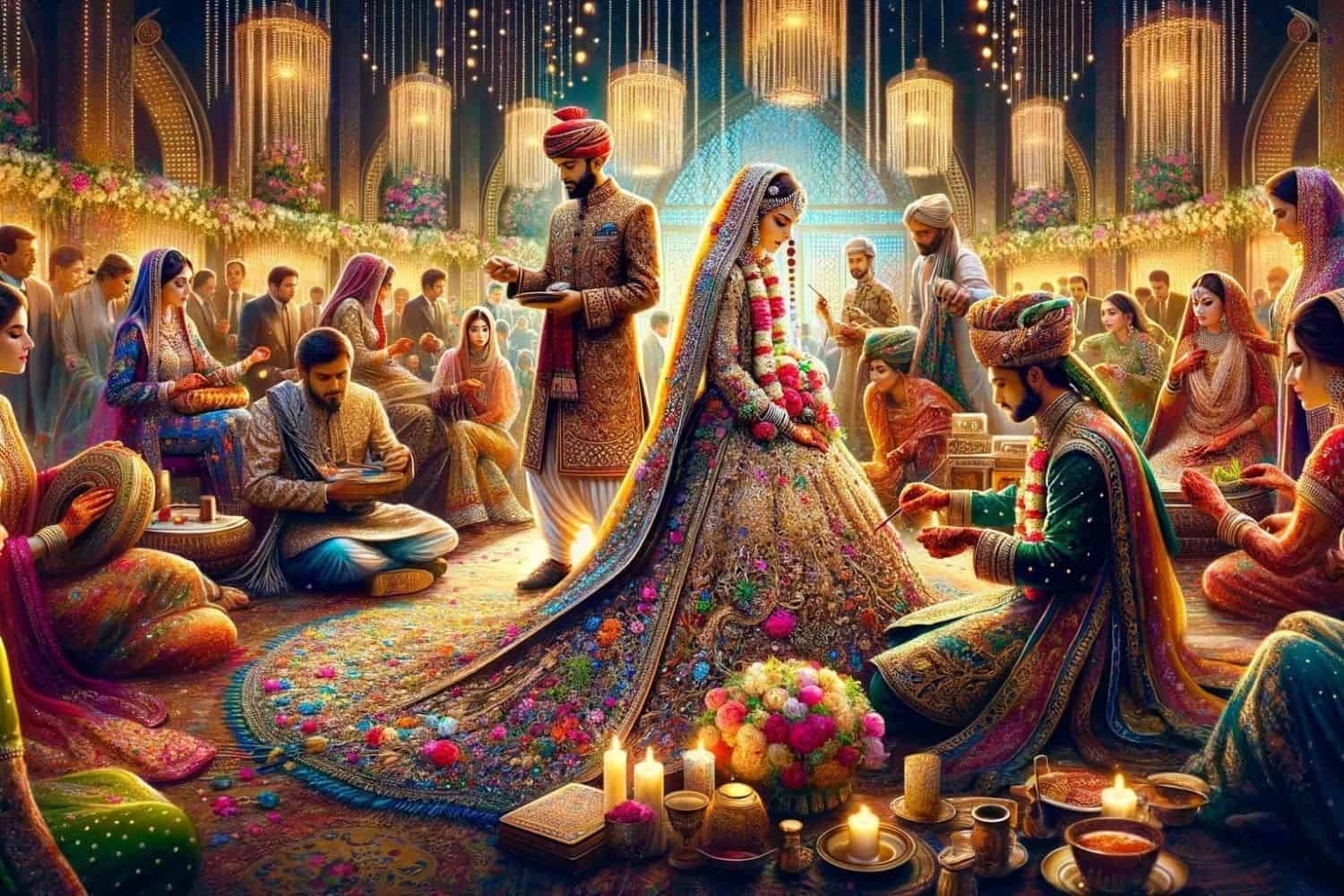
1. Arranged Marriages: Arranged marriages are common in Pakistan, with families often playing a central role in selecting suitable partners for their children. Arranged marriages are viewed as a means to ensure compatibility, maintain cultural and social cohesion, and strengthen familial bonds.
2. Matchmakers: Matchmakers, known as “rishta aunties” or “marriage bureaus,” facilitate the process of finding suitable matches for individuals. They consider factors such as family background, social status, and compatibility when suggesting potential partners.
3. Engagement: The engagement process in Pakistan typically begins with a formal agreement between the families of the bride and groom. This agreement marks the commitment of the couple to marry and may include the exchange of rings or gifts.
4. Wedding Celebrations: Pakistani weddings are grand and festive occasions that can span several days. They feature a range of customs and ceremonies, including the “mehndi” (henna ceremony), “baraat” (wedding procession), and “valima” (wedding reception). The main ceremony involves the signing of the marriage contract, known as the “nikah,” typically conducted in a mosque or at home.
5. Dowry and Gifts: In some regions of Pakistan, the groom may provide a dowry or “jahez” to the bride as a symbol of financial security and commitment. This practice varies by families and regions.
6. Bridal Attire: Pakistani brides wear exquisite and heavily embroidered dresses, often in vibrant colors. Traditional bridal attire includes lehengas, saris, or ghararas, complemented by intricate jewelry and ornate makeup.
7. Post-Wedding Customs: After the wedding, various traditions may continue, including the “rukhsati,” where the bride officially leaves her parents’ home to join her husband’s family, and the “waleema,” a celebratory feast hosted by the groom’s family.
8. Religious Significance: Marriage is not only a social commitment but also a religious sacrament in Pakistan, closely tied to Islamic customs and traditions. The “nikah” ceremony often includes recitations from the Quran.
9. Family and Community Involvement: Pakistani weddings are not solely about the union of two individuals; they are community celebrations. Extended families and friends play essential roles in supporting and participating in the festivities.
10. Contemporary Changes: While arranged marriages remain prevalent, there is a growing trend in urban areas and among the younger generation toward love marriages, where individuals choose their partners based on personal preferences. However, many love marriages may still involve traditional customs and ceremonies.
Pakistan Marriage Traditions reflect the significance of family, community, and cultural identity. These customs, deeply rooted in Pakistani society, continue to evolve while preserving the country’s cultural heritage and social bonds.
Pakistan Food Culture
Pakistan food culture is a rich and diverse tapestry woven from its history, geography, and the fusion of culinary traditions from various regions, including Central Asia, the Middle East, and South Asia.
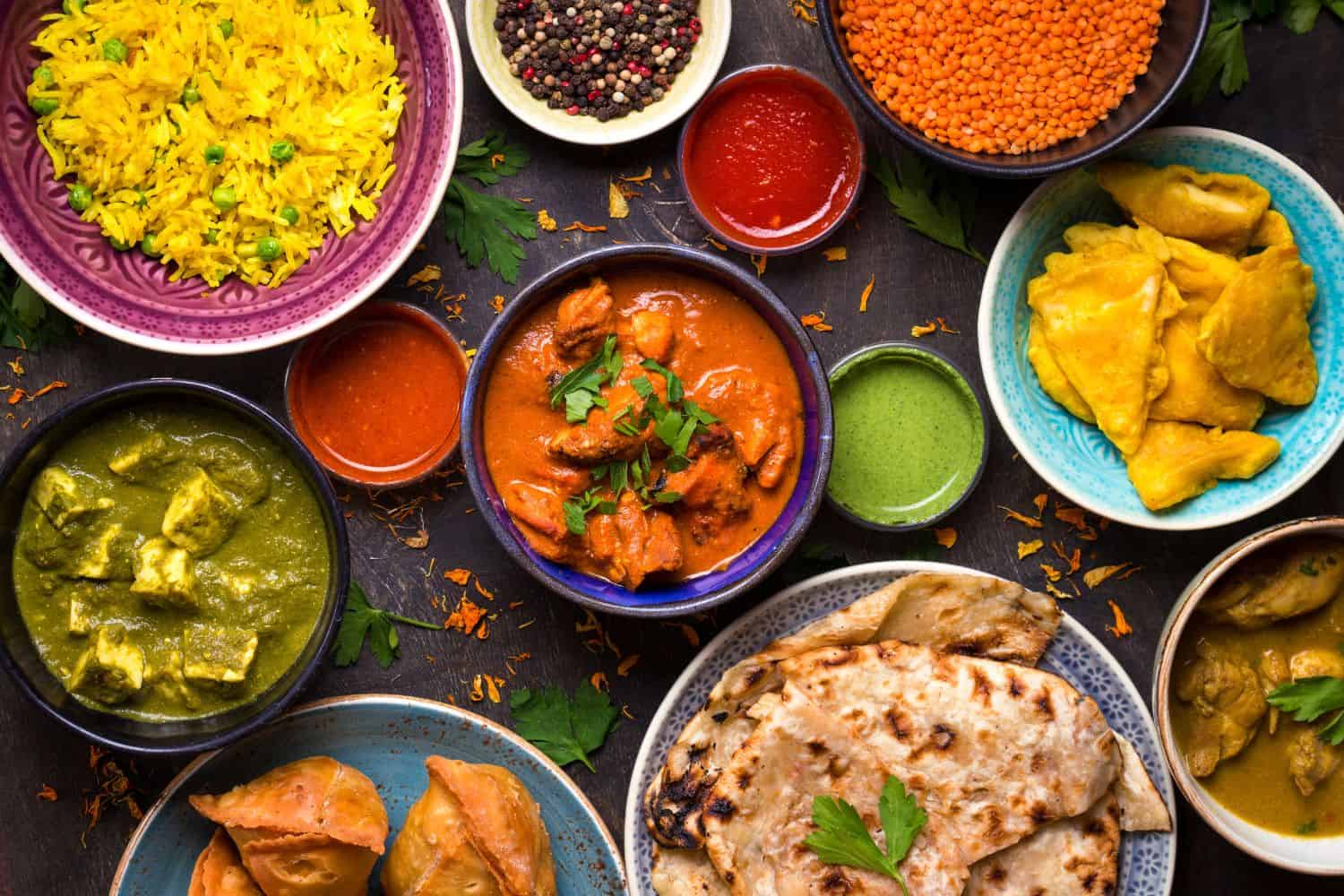
- Regional Variation: Food from Pakistan diverse geography, ranging from the fertile plains of Punjab to the rugged mountains of the North, has led to a wide range of regional cuisines. Each region incorporates local ingredients and cooking techniques, creating a rich tapestry of flavors.
- Staple Foods: Pakistani cuisine relies on staple foods such as rice, wheat, and various types of bread, including naan and roti. Rice dishes like biryani and pulao are popular and often prepared with aromatic spices.
- Kebabs and Grilled Meats: Grilled meats, especially kebabs, are a hallmark of Pakistani cuisine. Beef, chicken, and mutton are commonly used, and they are often marinated in spices and yogurt before grilling.
- Flavorful Spices: Pakistani dishes are known for their rich and complex flavors, thanks to the use of spices like cumin, coriander, turmeric, garam masala, and chili. These spices are used to create a symphony of tastes in various dishes.
- Traditional Dishes: Pakistani cuisine boasts a wide array of traditional dishes, such as “nihari,” “haleem,” “seekh kebabs,” “saag,” and “nihari.” These dishes often have regional variations and are cherished for their unique flavors.
- Use of Yogurt: Yogurt is a common ingredient in Pakistani cuisine and is used to make dishes like “raita” (yogurt-based condiment) and “lassi” (yogurt drink). It helps balance the heat of spicy dishes.
- Tandoori Baking: The tandoor, a clay oven, is widely used in Pakistan for baking various types of bread, including naan and roti. Tandoori dishes like “tandoori chicken” are also popular.
- Sweets and Desserts: Pakistani sweets are known for their sweetness and richness. Popular desserts include “gulab jamun,” “jalebi,” “halwa,” and “kheer.” These sweets are often enjoyed during festivals and special occasions.
- Tea Culture: Pakistanis have a strong tea culture, with “chai” (tea) being a beloved beverage. It is brewed with spices like cardamom and ginger and is often served with milk and sugar.
- Family and Community Dining: Pakistan culture places a strong emphasis on communal dining. Families and friends frequently gather around a “dastarkhan” (tablecloth) to share meals, fostering bonds and social connections.
- Influence of Pakistani Diaspora: Pakistani cuisine has made its mark internationally, with Pakistani restaurants and dishes gaining popularity in various parts of the world, thanks to the Pakistani diaspora.
- Resilience and Adaptability: Pakistani cuisine has endured and adapted over time, blending influences from different cultures and regions. It remains a source of pride and comfort, reflecting the resilience and creativity of Pakistani cooks.
Book our services
These guiding services ensure that your journey is not only enjoyable but also informative and hassle-free. Pakistan’s cultural delights, historical marvels, and natural wonders await your exploration with RJ Travel LLC. Our Pakistan Private Tours are designed to immerse you in the rich cultural heritage, historical significance, and breathtaking landscapes of this extraordinary nation.
Contact Us and our team will make sure to help you plan your trip to Pakistan when it’s safe and ready for travel. Whether you’re interested in joining a pre-arranged Pakistan small group tour or creating a custom itinerary, we are here to make your Pakistani adventure an unforgettable reality.
More About Pakistan
[the-post-grid id=”50406″ title=”Pakistan Main page”]
Book Your Trip to Pakistan Today!
Embark on an unforgettable journey and explore the allure of Pakistan through our exclusive tours.

